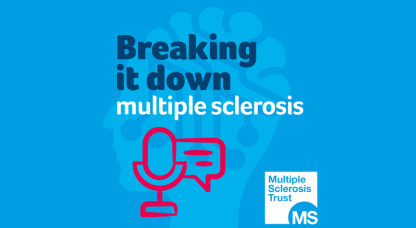Stay in the know with the latest news, research and stories from the MS community. Find information on things that matter to you, from tips on managing symptoms, through to stories about different drugs and treatment options. Want to share your story with us? We'd love to hear from you.
News & stories
Sign up to updates from us
Keep up-to-date with the latest MS news, explore new research, read the stories of people living with MS, find out practical tips from MS experts, and discover exciting fundraising opportunities
If you would like to sign up for post or telephone (SMS) updates you can complete our sign up form here










